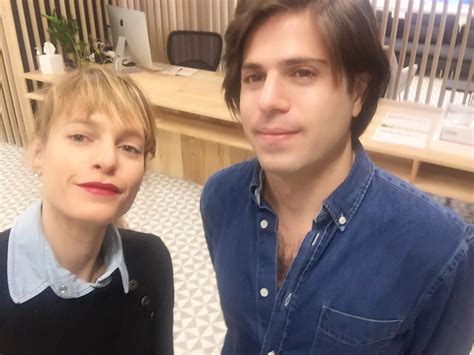A Quote by Justin Cronin
As long as we remember a person, they're not really gone. Their thoughts, their feelings, their memories, they become a part of us.
Related Quotes
You have your wonderful memories," people said later, as if memories were solace. Memories are not. Memories are by definition of times past, things gone. Memories are the Westlake uniforms in the closet, the faded and cracked photographs, the invitations to the weddings of the people who are no longer married, the mass cards from the funerals of the people whose faces you no longer remember. Memories are what you no longer want to remember.
When I wrote the story ["The Cartographers"], I'd just gone through a breakup with a woman I'd loved dearly. Without this other person in my life, the memories we'd shared often felt like phantoms. Who was this person I once loved? Did she still really exist? The answer, on a metaphysical level, was that this person didn't still exist. She'd gone on to become a different person, an individual with new hopes and dreams which no longer involved me.
Despite our preparation, indeed, despite our age, [the death of a parent] dislodges things deep in us, sets off reactions that surprise us and may cut free memories and feelings that we thought had gone to ground long ago. We might, in that indeterminate period they call mourning, be in a submarine, silent on the ocean's bed, aware of the depth charges, now near and now far, buffeting us with recollections.
The memories which peaceful country scenes call up, are not of this world, nor of its thoughts and hopes. Their gentle influence may teach us how to weave fresh garlands for the graves of those we loved: may purify our thoughts, and bear down before it old enmity and hatred; but beneath all this, there lingers, in the least reflective mind, a vague and half-formed consciousness of having held such feelings long before, in some remote and distant time, which calls up solemn thoughts of distant times to come, and bends down pride and worldliness beneath it.
My friends: Music is the language of spirits. Its melody is like the frolicsome breeze that makes the strings quiver with love. When the gentle fingers of Music knock at the door of our feelings, they awaken memories that have long lain hidden in the depths of the Past. The sad strains of Music bring us mournful recollections; and her quiet strains bring us joyful memories. The sound of strings makes us weep at the departure of a dear one, or makes us smile at the peace God has bestowed upon us.
It’s impossible to monitor every thought we have. Researchers tell us that we have about sixty thousand thoughts a day. Can you imagine how exhausted you’d feel trying to control all sixty thousand of those thoughts? Fortunately there’s an easier way and it’s our feelings. Our feelings let us know what we’re thinking.
Each of us plays four roles in relation to the brain. We lead, we inspire, we invent, and we use it. Most people do not actively use their brains. They passively let their feelings and thoughts control their lives. They don't invent new ways to use their brains, either, settling instead for the same routine and repetitive thoughts every day. But if you master all four roles, you create your super brain. When you are the active observer of your feelings and thoughts, you become the user of your brain. Your super brain then serves you, not vice versa.


































